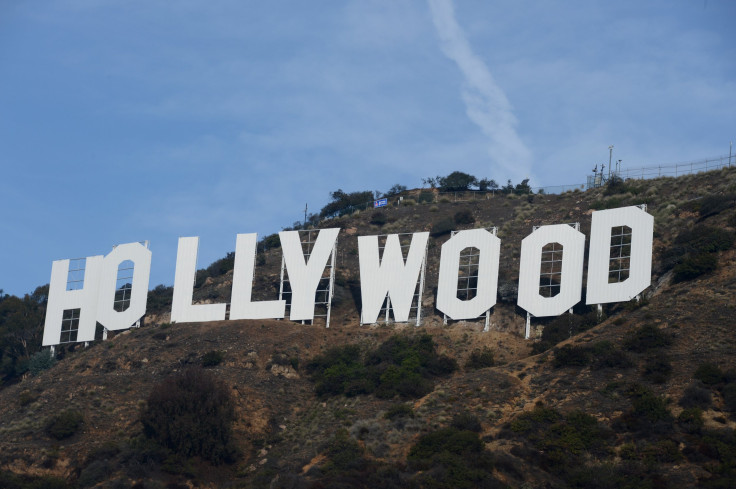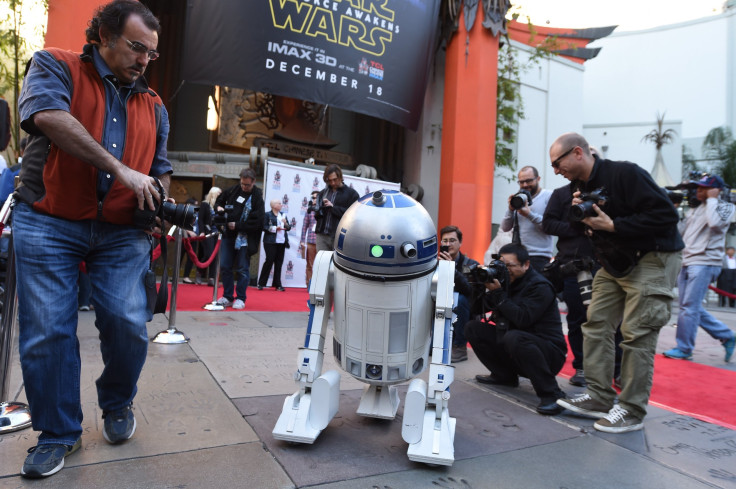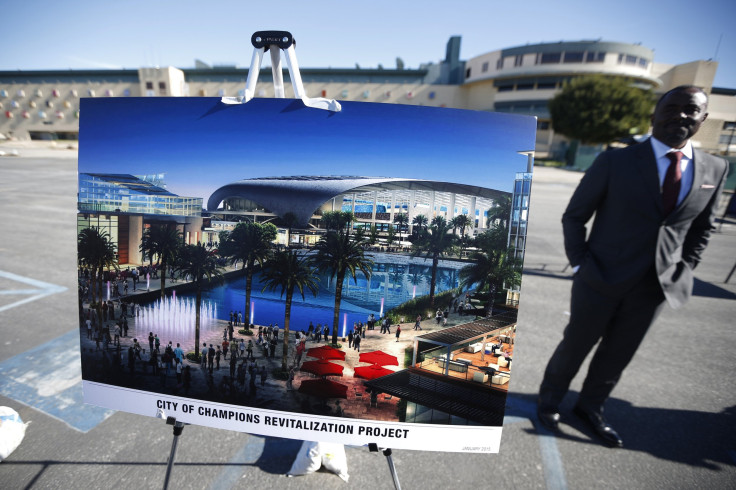Box Office Down? Porn Out? China Buying A Movie Studio? 5 Media Predictions For Hollywood In 2016

LOS ANGELES — Last December, the creator of the computer game "Minecraft" outbid Jay Z and Beyonce for a $70 million house in Beverly Hills, California. Also, the world's most popular YouTuber, PewDiePie, is not a major media personality from a large studio, but a Swedish comedian who offers commentary on video games. So in the end, nobody really knows anything about what works in the entertainment world and what doesn't. But in Los Angeles, you've got to at least pretend, if only to keep up appearances. Uncertainty and disruption aside, here are five big media events we fully expect will happen in Hollywood next year. (Remember who said it.)
1. A Chinese company or investor, maybe Alibaba, will buy a Hollywood studio.
For many logical and quasi-legal reasons, Chinese money continues to flow into high-end U.S. real estate and into Hollywood. Hunan TV, China's leading provincial broadcaster, signed a $375 million co-production deal in March with "Hunger Games" studio Lions Gate Entertainment. Chinese conglomerate Dalian Wanda Group owns AMC Theaters. But what hasn’t happened yet is a Chinese company buying a controlling stake in a studio.
Dalian Wanda CEO Wang Jianlin has talked about his desire to own a studio — mentioning how it could help with distribution — something Alibaba Group founder Jack Ma has brought up, as well. Ma recently scooped up the South China Morning Post and has spoken about using the paper to burnish China's image in the West. And there's no more effective source of soft power than Hollywood.
There's certainly plenty of room for growth in the Chinese market, but Dalian Wanda Group didn't buy AMC Theaters because it was satisfied with the opportunities at home. The American movie industry, in particular, matters.
Bennett Pozil, head of film finance at East West Bank, told the Los Angeles Business Journal last year that moves such as Hunan investing in Lions Gate are about a lot more than the financial return. Learning how Hollywood produces and distributes from the inside is the best education money can buy.
Chinese firms have dipped their toes into Hollywood a little deeper every year. Next year, one will make a splash with a studio acquisition.

2. Next year's domestic box office won't match the record performance of 2015.
This year, the force of "Star Wars: The Force Awakens" ended up propelling the domestic box office toward what's likely to be more than $11 billion in total receipts this year, its largest haul ever. The industry needed an unprecedented performance over the holiday season to beat 2013's previous high-water mark, and "Star Wars" delivered that.
But 2016 doesn't look like good bet to top that. This year benefited from the reemergence of two beloved franchises — "Star Wars: The Force Awakens" and "Jurassic World" — which ended up with the two biggest opening weekend domestic box office hauls ever, respectively. And while "Batman v. Superman: Dawn of Justice" should do well when it comes out in March, its effect won't come close to that of this year's blockbusters. The biggest movie of 2016 might not even come from Hollywood: "The Great Wall," an English-language action adventure film starring Matt Damon, is the most expensive film ever to be shot entirely in China.
3. The California condoms-in-porn law will pass.
Measure B, a 2012 L.A. County law that mandated the use of condoms in porn films shot in the area, has effectively sent filming of adult movies to other states, countries and underground — with all the safety concerns that entails. And a statewide initiative based on Measure B, which will be on this fall's California ballot, is likely to make things worse, despite the pleas of many in the industry who say the law has done nothing to make them safer.
"If we felt that condoms kept us more safe, we'd probably be willing to make that sacrifice,” Chanel Preston, an adult actress, told International Business Times. "But we're making sacrifices unnecessarily."
But actresses like Preston suffer because it's hard to pack nuanced and mature arguments against the law into a family-friendly sound bite. Industry folks can't exactly explain on the sample ballot how condoms cause agonizing friction burns. And Californians get to think they're fighting AIDS and helping their friendly neighborhood porn star all at the same time by voting to require condoms.
Measure B won a comfortable 57 percent of the vote, and the statewide initiative has also garnered strong early support. So, unfortunately for adult actors and actresses who want to shoot in California, it looks like the statewide condom law will pass.

4. The Inglewood Rams will become a reality.
Three NFL teams — the Oakland Raiders, St. Louis Rams and San Diego Chargers — are vying for, at most, two L.A. slots. Rams owner Stan Kroenke has a personal net worth of more than $7 billion and his already-secured stadium site, at the Hollywood Park development in Inglewood, is convenient for Westside corporate donors and industry types. The Chargers and Raiders have a competing stadium proposal in the more distant L.A. suburb of Carson, and they’ve tapped local luminaries like Disney CEO Bob Iger to join the effort.
But if we've learned anything in recent years from observing the NFL and its owners (who vote on any relocation or expansion plan), they really care only about money. Kroenke is the wealthiest of the three owners, doesn’t need a partner at his stadium site, and has the resources to make sure the NFL's L.A. relaunch doesn't suffer from financing hiccups.
5. Eli Broad will buy the Los Angeles Times and San Diego Union-Tribune
Not the boldest prediction, but the billionaire philanthropist still has to figure out a way to extricate the two California papers from their parent company, Tribune Publishing. Broad appears to have no interest in the other Tribune Publishing properties. And with Tribune Publishing's flagging stock price, it seems the longer he waits, the cheaper an acquisition is — another factor working against a deal.
But Broad has his hands in seemingly every matter of civic importance in Los Angeles, and the L.A. Times situation — with the attention it's drawn from prominent Angelenos — has become one of them. It may take Broad buying the entire Tribune Publishing portfolio and selling the rest off to private equity buyers or local owners, but he seems to be in the position of both not wanting the current limbo to linger much longer and being able to do something about it. Broad won't overpay, but it would be a surprise if he isn't in control of the L.A. Times by this time next year.
© Copyright IBTimes 2024. All rights reserved.











